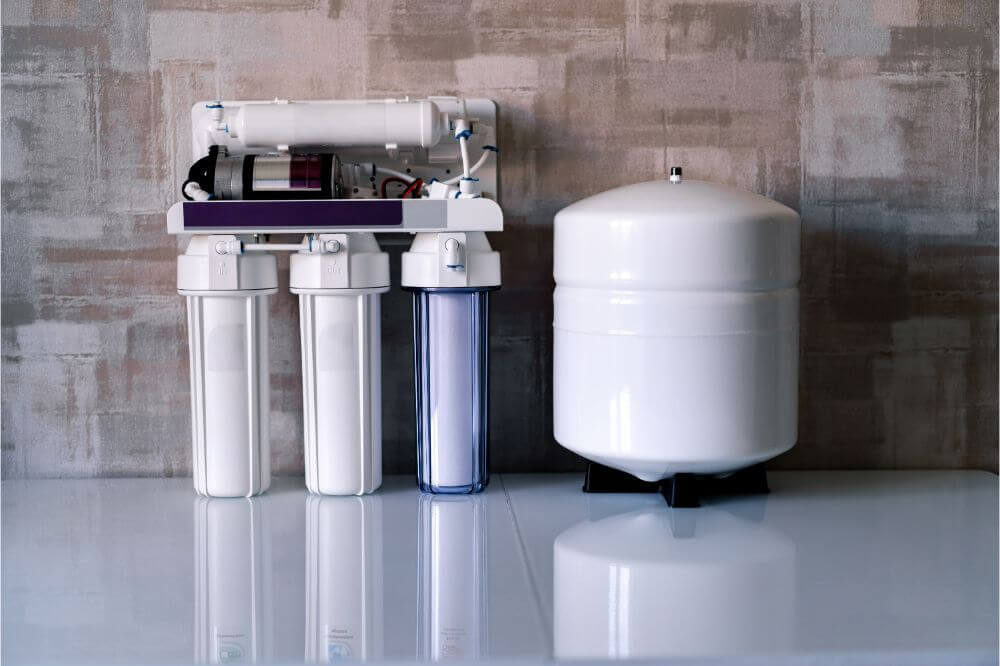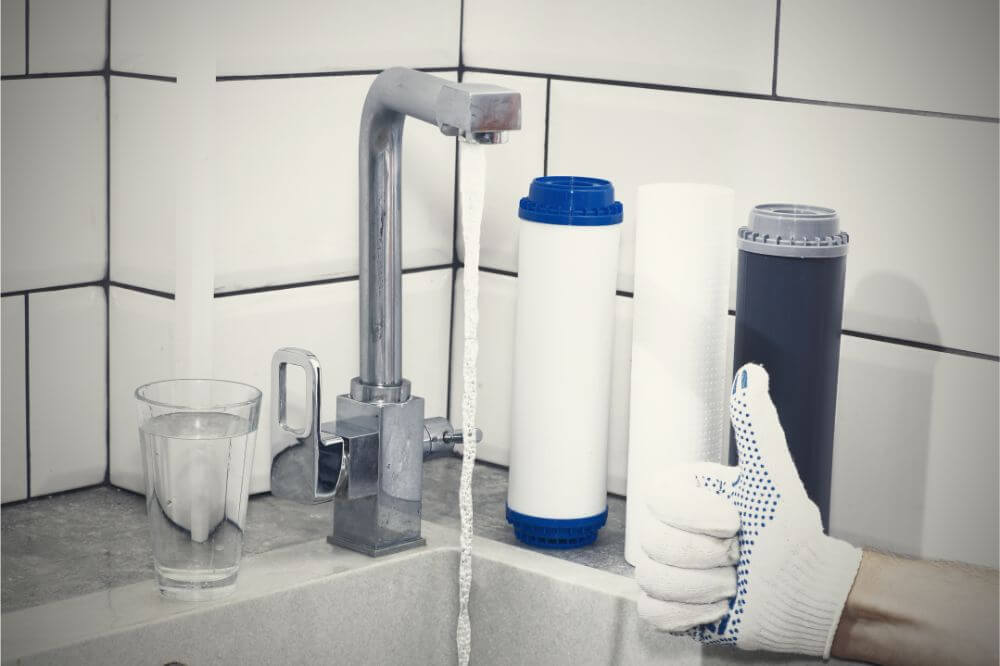If you’ve been thinking about installing a reverse osmosis water filter system in your home, you may be hearing a lot about how much water will be wasted. But, do reverse osmosis systems waste water, and how much water is really wasted?
Today we will discuss this issue, so you will know whether this type of water filter system will suit your particular needs.
Why is There Water Waste?
Some people will tell you there is a lot of water wasted with a reverse osmosis filter system, while others will tell you there is practically no water waste at all.
So, which is true? Actually, some waste is not nearly as much as some would like you to think. Many of the facts are exaggerated, especially when you find misleading articles online.
How Reverse Osmosis Works
How does reverse osmosis work? The process involves water being forced through a series of membranes that are very tiny and fine. The water passes through but larger particles such as sediments and heavy metal contaminants. Water is used for flushing away these contaminants.
Waste Water Ratio
The ratio of waste water to purified water is about four to one. A reverse osmosis system will use about four gallons of water to create one gallon of healthy water. Several factors contribute to the amount of water that is wasted, including water pressure. If your water pressure is below 35 to 40 PSI, your filter system won’t be very efficient.
You also need to consider the condition of your reverse osmosis filter system. For instance, worn valves can make the system less efficient. Keeping the system maintained properly will ensure that water waste is at a minimum.
Don’t forget about recycled water. Reusing discharged water is one way to reduce the amount of water wasted by a reverse osmosis filter system.

Don’t Listen to the Waste Water Argument
People may try to tell you that the water you get from the municipal water supply is completely safe for consumption, and they will say that having a reverse osmosis system is a waste of money. There are several good reasons not to listen to this argument.
We waste a lot of water every day. Your home’s water supply is used for doing laundry, washing dishes, showering or bathing, etc. Whether you have a filtration system or not, water will be wasted. But, using a water filtration system will use water rather than waste it.
Obviously, systems used in desalination on an industrial scale will result in a lot of water waste, but this isn’t the case with a system installed in your home.
Amount of Waste Water and How to Reduce It
There are several ways that you can reduce the amount of water a reverse osmosis water filter system wastes. These include:
Recycling
There are several ways that you can recycle the water that is discharged. Some filters will recirculate this discharge, so it is continually used during the filtration process. The only problem with this is that it can cause a lot of additional wear on the filter.
You can also funnel the water to a hot water tap that doesn’t require purified water, but since water from a reverse osmosis system has many impurities, this isn’t always the best option.
Water Pressure
The lower your water pressure, the more discharged water there will be when using a reverse osmosis water filter system. If your water pressure is below 35 to 40 PSI, which is ideal, you will need to check the water pressure reducing valve.
If nothing is wrong with the valve, you may need to see if the water authority in your area is having pressure issues.
Regular Maintenance
You can’t just set up a reverse osmosis water filter system and expect it to run flawlessly without regular maintenance. While these systems don’t require a lot of maintenance, you need to familiarize yourself with the stages of the filters and how each stage works.
Most reverse osmosis membranes can last up to two years, but sediment, carbon, and polishing filters should be changed annually. During filter changes, it is a good idea to clean the entire system.
Is Installing a Reverse Osmosis System Worth the Cost?
No matter what kind of water filter system you have installed in your home, there will be some water waste. Is this waste worth the cost of installing one of these systems?
Well, look at it this way: If you purchase bottled water for drinking and cooking, you will be spending approximately $1.22 per gallon. The cost to use a reverse osmosis system is around $1.21 per person per year. Added up, that is a pretty huge saving.

